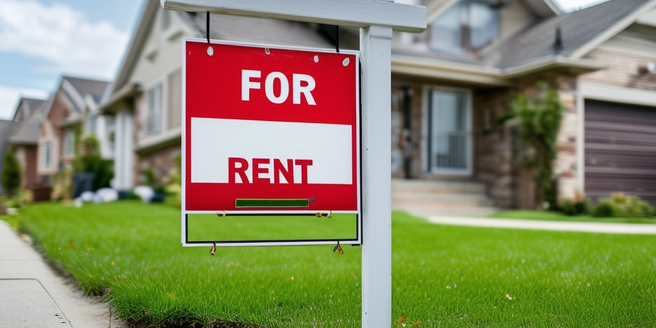How To Negotiate Rent Prices

Understanding the Rental Market
| City | Average Rent | Vacancy Rate |
| New York | $3,200 | 3% |
| Los Angeles | $2,800 | 4% |
| Chicago | $2,000 | 5% |
| Houston | $1,500 | 6% |
| Miami | $2,500 | 4.5% |
| San Francisco | $3,500 | 2.5% |
Researching Comparable Properties
Researching comparable properties in your area is a crucial step in negotiating rent prices. By understanding what other properties with similar features and amenities are going for, you can build a strong case for why your rent should be lower. Several online tools and websites can help you gather this data. Additionally, consider visiting some of these properties in person to get a firsthand look at what they offer. Make sure to look at properties within the same neighborhood and consider any differences in amenities, property condition, and location. Don’t forget to take notes and document your findings for future reference. The more data you gather, the better prepared you will be to make a solid argument during your negotiation.
Preparing Your Financial Documents
When negotiating rent, it’s essential to present yourself as a reliable and financially stable tenant. Preparing your financial documents in advance is key. This can include pay stubs, bank statements, or proof of income. Having your paperwork organized can make a positive impression during negotiations. Additionally, obtaining a letter of reference from a previous landlord can further bolster your application. A well-organized presentation can significantly impact the landlord’s perception of you. Landlords want reassurance that you can afford the rent and will make payments on time. By showing these documents, you demonstrate your financial reliability, which can be a deciding factor in your favor. Being transparent about your finances can also help in negotiating other lease terms beyond the rent price.
Timing Your Negotiation
Timing can play a significant role in the success of your rent negotiation. The best times to negotiate are generally right before your lease renewal or during off-peak rental seasons. Landlords may be more willing to negotiate if they are concerned about filling the rental property during slower months. It’s also advisable to have a clear understanding of your budget and needs before initiating the conversation. It’s important to do your research on the rental market trends in your area. Additionally, if you approach your landlord well before your lease ends, it gives both parties ample time to consider and negotiate terms without the pressure of an immediate deadline. Proper timing can increase your chances of a favorable outcome.
Building a Strong Case for Lower Rent
Constructing a robust argument for reduced rent involves combining market research, personal financial stability, and any property-specific issues. Highlight any maintenance issues, outdated appliances, or other factors that may justify a lower rent. Make sure to gather all relevant documents beforehand. Consider presenting a record of timely rent payments as additional proof of your reliability. It is also helpful to compare rental prices in the area to show that your request is reasonable. If you have been a long-term, reliable tenant, use this to your advantage by emphasizing your good rental history. Present your case in a structured manner, providing documentation and evidence to support your request. A well-prepared case can significantly boost your chances of securing a reduction in rent.
Effective Communication Strategies
Effective communication is key to successful rent negotiations. Approach the conversation with a positive and respectful demeanor. Clearly state your case, backed by evidence, and listen actively to your landlord’s responses. Avoid confrontational language and be willing to compromise. It’s also helpful to practice your negotiation pitch beforehand. Remember that building a good relationship with your landlord can have long-term benefits. Being clear about your needs and limitations while considering the landlord’s perspective can lead to a more amicable and successful negotiation process. Maintain a calm and polite tone throughout the discussion. Ensure that all agreed-upon terms are documented in writing. Additionally, consider bringing up examples of neighbors or similar rental properties to strengthen your position.
Negotiating Lease Terms Beyond Rent Price
Rent price isn’t the only aspect of a lease that can be negotiated. Consider discussing other terms that may benefit you, such as lease duration, renewal options, and included utilities. Sometimes, landlords are more flexible with these terms than with lowering the rent. For instance, a longer lease might secure you a lower monthly rate. You could also negotiate for property improvements or the inclusion of additional amenities. Understanding the flexibility of your landlord can provide an edge in these discussions. It’s helpful to approach these negotiations clearly knowing your priorities and limitations. Being open to adjusting various lease elements can make the negotiation process more fruitful and result in a more favorable overall living arrangement.
Dealing with Landlord Counteroffers
It’s common for landlords to make counteroffers during rent negotiations. Be prepared for this and consider what terms you are willing to accept. Remember that flexibility can sometimes result in better deals for both parties. Reviewing the terms beforehand can give you confidence during the discussion. Review any counteroffer carefully and compare it to your initial request and market standards. Don’t be afraid to ask for clarification on any points that seem unclear. If the counteroffer meets some of your needs but not all, you can continue negotiating to find a middle ground. Always remain respectful and professional during these discussions. Approaching counteroffers with an open mind can lead to mutually beneficial agreements.
Finalizing the Agreement
Once you and your landlord reach an agreement, it’s crucial to finalize everything in writing. This includes detailing any changes in rent amount, lease terms, or any other negotiated conditions. Having a written and signed agreement ensures that both parties are clear on what has been agreed upon, reducing the likelihood of future disputes. In case any issues arise, a well-documented agreement can serve as a valuable point of reference. To avoid misunderstandings, be sure to review the document thoroughly before signing. Ensure that all details are clearly documented, and keep a copy of the finalized lease for your records. This step solidifies the negotiated terms and offers peace of mind moving forward.
Tips for Future Rent Negotiations
Negotiating rent isn’t a one-time skill but one you may use multiple times. Keep detailed records of past negotiations, including successful strategies and areas needing improvement. It’s important to communicate clearly and assertively while negotiating. Gather any relevant information that may help in your discussions. Additionally, consider consulting with a housing advisor for expert advice. Knowing your rights as a tenant can also provide a strong foundation during negotiations. Build and maintain a positive relationship with your landlord, as this can facilitate future negotiations. Stay informed about market trends and rental laws to strengthen your position in future discussions. Being proactive and well-prepared can make future rent negotiations smoother and more successful, securing better living conditions and financial arrangements for yourself.
